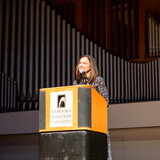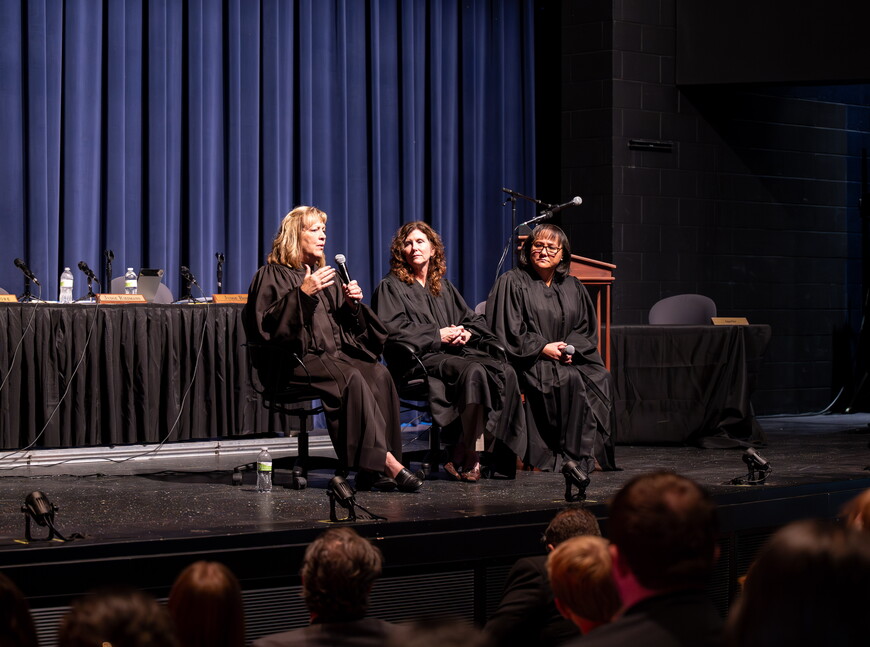When the court bailiff said, “All rise,” on Tuesday in Nebraska Wesleyan University’s McDonald Theatre, more than 300 students watched the Nebraska Court of Appeals conduct business.
“It was really, really interesting,” said Noah Smith (’26) “I've always wanted to see a court in action. Now, I want to become a lawyer after watching the proceedings. It’s made me more interested in understanding how the law works,” Smith, a political science major, said.
NWU hosted the Nebraska Court of Appeals earlier this week for the court’s annual College Campus Initiative. The judges heard a series of cases while students from area high schools and NWU witnessed the proceedings. Then, the students were able to ask the judges questions.
“I didn't know how this court was set up. I didn't know that they (the lawyers) had ten minutes to present their case,” Sarah Aguilar (’27), a criminology major, said. “They didn’t give their opinion about the case and focused on where they think the trial court made an error.”
The College Campus Initiative is in its twelfth year and was at NWU for the second time. “Coming to colleges and universities gives us an opportunity to showcase what the appellate courts do, but it also gives us an opportunity to inspire students to consider careers in law,” Judge Frankie Moore (’80) said. “We hope to educate the public and students about that part of the law, because it's a bit of a mystery,”
Moore said the Court has been to each university and college in Nebraska, but it’s unique to come back to her alma matter. “It reminds me how I got started in the law because I didn’t know what I wanted to do and my adviser William Cascini helped me decide,” she said.
“I had two degrees and wasn’t sure what route I wanted to take … He asked me if I had considered law school, which I had not. We discussed it, I pursued it, I eventually took the law school entrance exam, and the rest is history.”
She says sharing these experiences provide students a bit of a civics lesson. “Maybe they’ll understand the third branch of government a little bit more. If they have an interest in the law, we hope that we have answered some questions that might inspire them.”













